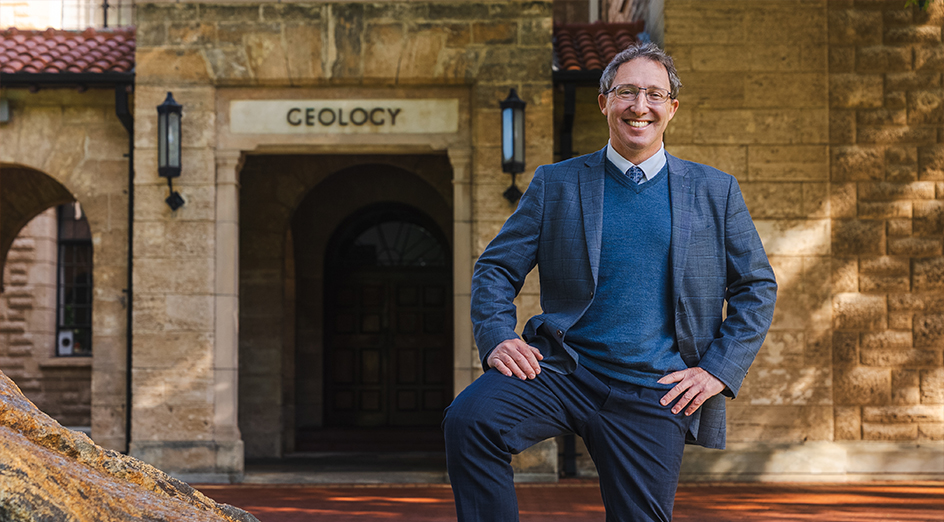
Critical Minerals Research Fuels Energy Transition
By Thomas Smith
The University of Western Australia is leading pioneering research that will unlock critical minerals needed to shape a global energy transition.
Our world is changing. The transition from fossil fuels to more sustainable, cleaner energy is under way.
This energy transition relies on new technology. The critical minerals essential for developing this new technology will require governments and industries to undergo their own transition.
Traditional exploration, extraction and processing methods no longer meet Australia’s environmental, social and governance (ESG) standards.
The critical minerals sector is facing the challenge of not only increasing production to meet rising, global demand, but they must also develop new strategies to meet the latest sustainability targets.
A smarter, more agile approach is required.
The supply chain – exploration, extraction and processing –must evolve to meet this demand and deliver the critical minerals the world needs.
Researchers at UWA have stepped up to meet the global energy transition challenge, with the launch of an innovative new research centre, the ARC Industrial Transformation Training Centre in Critical Resources for the Future (ITTC).
This Centre brings together some of Australia’s leading universities, resource industry stakeholders and government institutions to drive research into critical minerals and sustainable mining.
The Centre’s founder and Director is Professor Marco Fiorentini, from UWA’s School of Earth and Oceans.
Professor Fiorentini said the new Centre was the first of its kind in Australia, uniting research leaders from UWA, Australian National University, The University of Queensland and The University of Adelaide.
“Critical minerals are so important because a lot of them are used to manufacture the technology needed to move away from fossil resources,” Professor Fiorentini said.
“If we want to manufacture batteries, if we want to electrify the world, if we want to really develop a society that is non-carbon based, we need a lot of these metals.
“However, Australia’s exploration and extraction strategies currently rely heavily on empirical knowledge of known mineral systems, limiting our ability to meet the rapidly increasing global demand for critical minerals.”
Hosted by UWA, the Centre aims to bring together the skills and disruptive thinking required to advance the critical minerals sector. It’s also focused on training the next generation of geoscientists to address the global challenges of climate change and energy security.
“The Centre will develop the science that is needed to find the ore deposits of the future that are key to the energy transition,” Professor Fiorentini said.
“It will operate between and across different disciplines, so that we have geoscientists working with metallurgists, working with engineers, working with environmentalists.”
Image: Professor Marco Fiorentini.
Professor Fiorentini’s vision for the new Centre includes the creation of a more agile approach to identifying new ore bodies and developing the science to optimise extraction and processing.
“Through science, we can really become surgical in finding new deposits,” Professor Fiorentini said.
“It’s not only about finding more ore, it’s about finding diverse sources of ore. That’s why we’re thinking about ways of repurposing existing mine waste and looking at ways to explore for new types of ore deposits.”
Professor Fiorentini said it was vital for exploration and mining operations to minimise the environmental impact associated with exploration, through more precise, predictive targeting, as well as efficient ore processing and metallurgical practices.
“Commodities such as lithium, cobalt, rare earths and platinum group elements require the sustainable development of new ore deposits,” Professor Fiorentini said.
“Current exploration methods may not suffice, so future mines will need to leverage automation, digitalisation and decarbonised processes to meet ESG standards.”
The critical minerals sector’s traditional methods limit the discovery of new ore bodies.
“At the moment, we don’t have all the skills to find the resources we need,” Professor Fiorentini said.
“We want to create the knowledge that is required and we want to translate that science into training models so that our future students, our future geoscientists, will be well equipped to address the challenges.”
Key to the Centre’s success is collaboration.
“The link between industry, government and academia is already very good in Australia but we can make it better,” Professor Fiorentini said.
“Industry will play a key role, providing mentorships, internships, defining the challenges that have to be addressed, providing resources, providing opportunities to be trained at these different nodes at different universities.
“If we can start training students using that technology, and developing that technology to generate new, cutting-edge science, that will be transformational.
“Most importantly, the ITTC will focus on training future geoscientists – from discovering new, critical metal resources, all the way to characterising and processing them.
“I want the Centre to inspire young geoscientists. I want them to understand how important their work is and that geoscientists can play an important role in global energy transition for future generations.”
Climate change and population growth are key factors behind the global energy transition.
The challenges facing the world are many. However, these challenges also offer scientists and researchers the opportunity to help the world adapt and evolve.
“Australia is a dream come true for geoscientists,” Professor Fiorentini said.
“From a geoscience perspective, Australia is the one place on earth that has its entire geological record preserved.
“If you were to imagine a giant library, Australia would have very single book that was ever written.
“That complete geological record that we have in Australia translates to an incredible endowment in metal resources, like potentially nowhere else on the planet.
“We have here in our hands, one of the greatest opportunities. Australia can play a really pivotal role globally, resourcing the planet.”
Less than a year after it was launched, what’s next for the Centre?
“We’re only mid way through 2025 and the Centre continues to take great strides in establishing our reputation in Australia and on the international stage,” Professor Fiorentini said.
“Since the launch, our focus has been on laying solid foundations upon which to build the short, medium and long-term future of the Centre.
“This includes driving recruitment and communication efforts, working closely with our partners to refine and align research projects and ensuring our activities are responsive to real-world needs.
“We are also focused on expanding our networks and partnerships, building strong pathways between policy, industry and research to support knowledge exchange, innovation, and the infrastructure needed to deliver our vision of a new energy revolution.”
Artificial intelligence is among the many tools available to manage data and achieve the Centre’s energy innovation targets.
“The Centre is exploring the use of big data and machine learning to assess regional mineral potential,” Professor Fiorentini said.
“This collaboration could revolutionise how we approach exploration, improving accuracy and efficiency.”
Construction of a new Centre in Critical Resources for the Future (CCRF) High-Pressure Lab facility is under way to target knowledge gaps.
“This initiative aims to deliver real-time, onsite mineralogy and elemental trend data, helping inform drilling decisions and optimise critical infrastructure deployment in remote areas,” Professor Fiorentini said.
“The ability to analyse data onsite will significantly enhance operational efficiency.”
Momentum continues to build towards establishing a global centre of excellence that will lead the energy revolution into the next century.
“This is only the beginning,” Professor Fiorentini said. “So much is happening here in Australia and overseas, and I look forward to sharing regular updates with our expanding network in the months and years ahead.
“We’re building a Centre that will become a global platform for energy innovation, benefitting future generations through research, training, knowledge translation and technology.”
https://www.uwa.edu.au/news/article/2025/july/advancing-critical-minerals-research-to-lead-global-energy-transition


